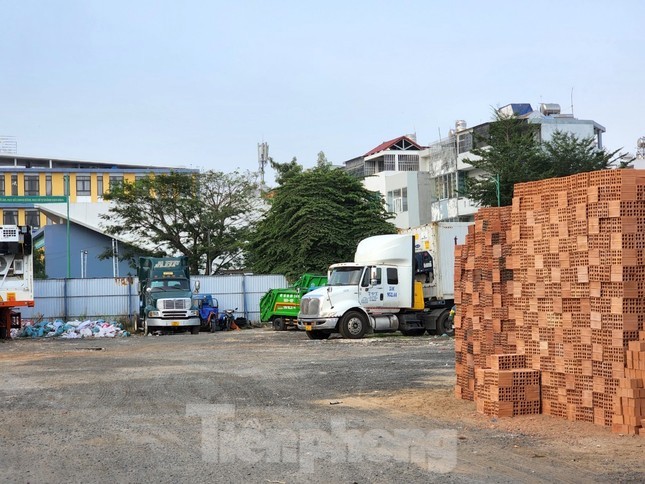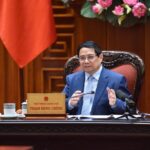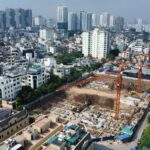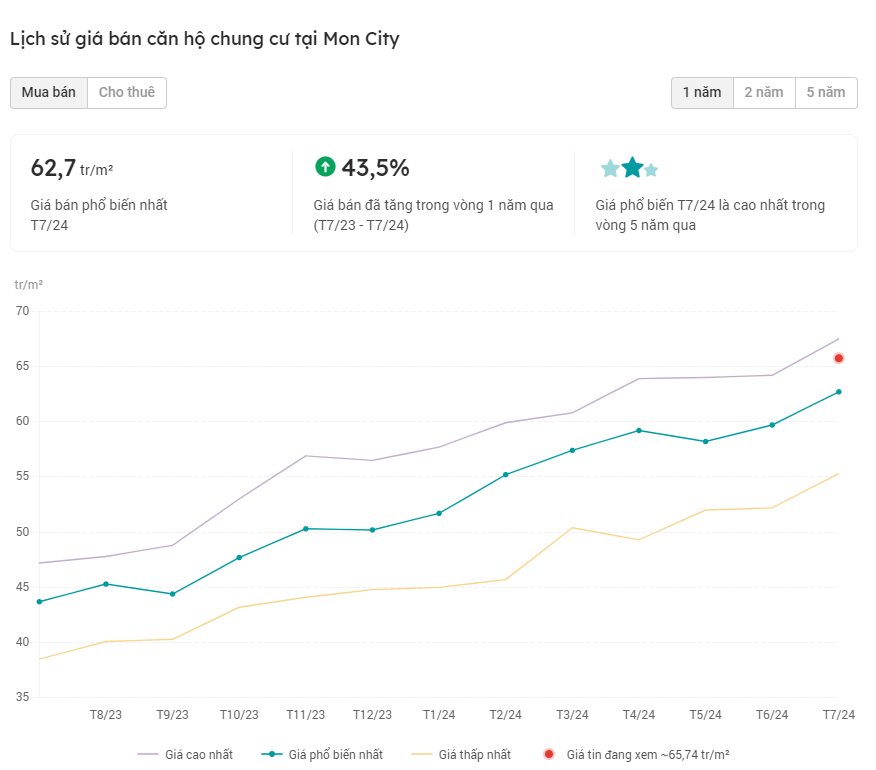Red Tape Tangles Social Housing Projects: 45-Day Procedure Takes 5-7 Years in Reality
While social housing projects are a priority for development, the procedures related to investing in these projects are more stringent than those for commercial housing, according to businesses. This has resulted in prolonged project implementation timelines.
The MR1 social housing project in Tan Thuan Tay Residential Area (District 7, Ho Chi Minh City), developed by Xuan Mai Saigon Construction Investment Joint Stock Company, broke ground in August 2022. It aims to provide 712 apartments for about 1,400 middle-income earners with full amenities. However, since the groundbreaking ceremony, the land has been utilized as a parking lot, with no signs of construction.
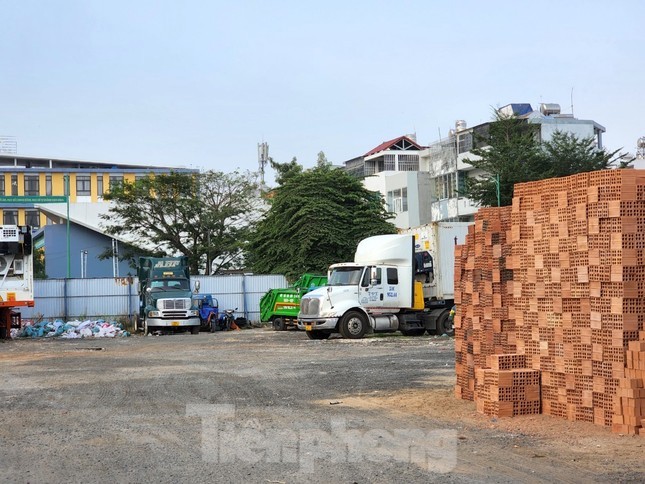
MR1 Social Housing Project in Tan Thuan Tay Residential Area (District 7, Ho Chi Minh City) shows no signs of construction three years after the groundbreaking ceremony.
In mid-2022, the Ho Chi Minh City Department of Construction and investor Thien Phat Company held a groundbreaking ceremony and test pile-driving for the Worker Accommodation Project in Linh Trung II Export Processing Zone. The project comprises 360 apartments, providing 1,000 accommodations for workers, with a total expected investment of VND 408 billion.
The investor representative shared that the company had spent its own money on fire protection procedures, project design modifications, and procedures for land lease certificates valid for 50 years. However, they are still facing back-and-forth administrative hurdles, resulting in idle land that wastes societal resources and investor confidence.
Similarly, the Le Thanh Tan Kien social housing project by Le Thanh Company in Tan Kien Commune (Binh Chanh District, Ho Chi Minh City) also held a grand groundbreaking ceremony half a year ago but is yet to commence construction due to procedural obstacles. With four 18-story apartment buildings, the project could provide 1,445 apartments for thousands of workers if construction began promptly.
Despite the developer’s self-funded land acquisition and available capital, Le Thanh Company faces cumbersome procedures, with the single bottleneck being the slow resolution of paperwork.
Initially, the project was supposed to follow a simplified procedure for a 1/500 detailed plan. However, the People’s Committee of Binh Chanh District disagreed and required the company to follow the standard regulations. But when the paperwork reached the Department of Planning and Architecture (former), it turned out that the simplified procedure was sufficient.
Currently, the approval process for social housing project investment is supposed to take 45 days, but many businesses take 5-7 years to complete it. Such delays disrupt companies’ financial plans and hinder people’s access to affordable housing.
Mr. Pham Quoc Quan, representing Sun Group, shared that some projects with 95% completed legal procedures still require several years to finalize the remaining 5%. According to Mr. Quan, Ho Chi Minh City needs to classify and promptly address issues within its authority and even set KPIs for relevant agencies.
Businesses Face Mounting Challenges
Ms. Duong Thanh Thuy, founder of the Trung Thuy Group, shared that Vietnamese businesses are at a disadvantage in their home market. Her group has two projects that have been stalled for nearly ten years due to procedural issues, incurring significant losses. One project is completed but cannot be sold due to incomplete legal requirements.
In Hanoi, another project has also faced delays and was recently resolved thanks to policies on future homes.
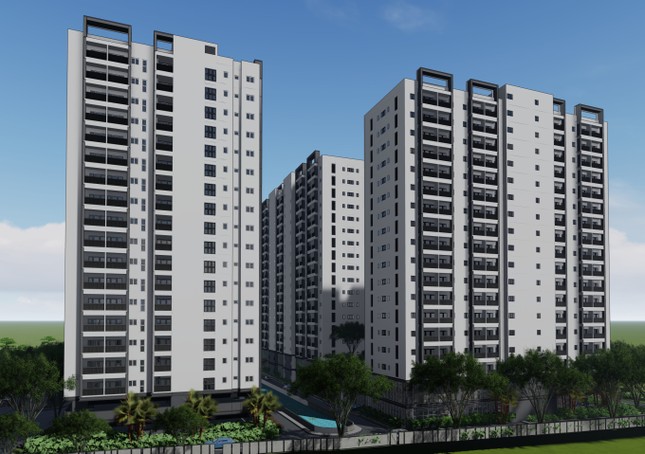
Le Thanh Tan Kien social housing project: Nearly half a year after the groundbreaking ceremony, construction is yet to begin due to procedural hurdles. Project perspective image.
According to Ms. Thuy, cumbersome administrative procedures and high-interest rates are stifling the competitiveness of domestic businesses. Foreign companies can borrow at 2% interest from their parent companies, while local firms face much higher bank interest rates. Additionally, domestic supermarkets face pressure from foreign retail giants.
Furthermore, domestic enterprises are frequently inspected and audited, requiring them to explain numerous documents, which drains their resources and time. “It’s challenging to focus on growth when dealing with bureaucratic procedures,” Ms. Thuy expressed. She also proposed a drastic reform of administrative procedures and practical support policies regarding taxes, fees, and interest rates.
A recent survey by the Ho Chi Minh City Business Association revealed that most small businesses and households encounter difficulties from the licensing stage to dissolution.
Mr. Nguyen Ngoc Hoa, Chairman of the Ho Chi Minh City Business Association, believes that administrative procedures remain a significant obstacle. He suggested that Ho Chi Minh City aim to reduce at least 30% of procedures, as directed by the Government. He proposed allowing associations and businesses to work directly with departments to identify and promptly address bottlenecks.
Mr. Le Hoang Chau, Chairman of the Ho Chi Minh City Real Estate Association (HoREA), pointed out that the most significant bottleneck in implementing laws for social housing project procedures is the lack of synchronization and the passing of responsibilities between departments, districts, and counties. This results in slow administrative procedures, causing frustration among businesses.
Mr. Chau proposed that the competent authority should develop a “Pilot Resolution of the National Assembly” to enable the People’s Committees of the provincial level to appoint investors for social housing projects when using public land. This proposal, if approved, would shorten the time for procedures and reduce compliance costs for both the state and investors.
HoREA has submitted a document to the Central Strategy Policy Committee, proposing a pilot program to allow the provincial People’s Committees to appoint investors for social housing projects when using public land. This proposal stems from the fact that, according to the 2023 Housing Law, social housing projects using public land must undergo a bidding process to select investors. HoREA believes that if there are two or more interested investors submitting registration dossiers, it will take a significant amount of time, as a bidding process to select the investor must be organized, lasting at least 500 days.
The Annual Cost of Administrative Procedures Compliance Exceeds 120 Trillion Dong
According to statistics, the annual cost of administrative procedures compliance amounts to a staggering 120 thousand billion VND. In light of this, the Prime Minister has issued an urgent directive to review, streamline, and simplify administrative procedures related to production and business activities. The goal is to reduce the time, cost, and conditions for business operations by at least 30% each in 2025.
Unveiling the Progress of Hanoi’s Anticipated Social Housing Project
After more than 5 months of construction, the social housing project on land lot NO1 in the new Ha Dinh urban area (Hanoi) is currently undergoing basement work and is expected to be completed by July 2025. The timely completion of this project will facilitate the process of receiving applications from individuals and families seeking affordable housing options in the area.

